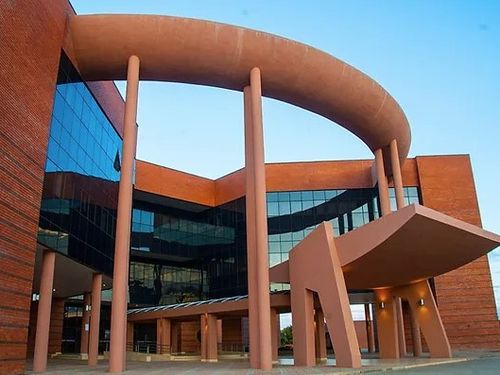Regional Centers of Engagement
Africa
Botswana-UPenn Partnership

The University of Pennsylvania has worked in Botswana since 2001 and currently employs approximately 120 full-time staff in country working under the name the Botswana-UPenn Partnership. The Botswana-UPenn Partnership works with the Government of Botswana Ministry of Health and the University of Botswana to build healthcare and research capacity in Botswana. Penn is taking a broad interdisciplinary approach to train health-care personnel throughout Botswana in the treatment of HIV/AIDS and its complications, to help develop post-graduate training programs at the University of Botswana with an emphasis on Internal Medicine and its subspecialties, to offer experience in global health to Penn trainees, and to develop joint research programs that address issues relevant to the health and welfare of the citizens of Botswana. Please see the Botswana-UPenn Partnership website for more information.
Southeast Asia
Vingroup-penn alliance

The VinGroup–Penn Alliance (VPA) has transformed health professions education in Vietnam through a comprehensive partnership between Penn and VinUniversity (VinUni) to establish Vietnam’s first U.S.-style College of Health Sciences, built on international accreditation standards and a shared commitment to excellence in education, research, and clinical training.
Since 2018, Penn faculty have developed the full UME, GME, and BN curricula, trained more than 500 Vietnamese educators, and launched the nation’s first competency-based residency programs in Internal Medicine, Surgery, Pediatrics; achieving ACGME-International accreditation. VinUni’s Bachelor of Nursing program earned ACEN accreditation, while the undergraduate medical education program is pursuing WFME-aligned accreditation, positioning it among the first in Southeast Asia to meet this global benchmark for medical education quality.
Middle east
AUD-Penn Alliance
 The AUD–Penn Alliance focuses on the establishment of a new Doctor of Medicine (MD) program within a leading private institution of higher learning, the American University in Dubai (AUD). This partnership is designed to transform medical education and healthcare outcomes in the UAE and the broader Gulf region by integrating world-class academic and clinical training.
The AUD–Penn Alliance focuses on the establishment of a new Doctor of Medicine (MD) program within a leading private institution of higher learning, the American University in Dubai (AUD). This partnership is designed to transform medical education and healthcare outcomes in the UAE and the broader Gulf region by integrating world-class academic and clinical training.
Under the framework of this alliance, the Perelman School of Medicine at the University of Pennsylvania, ranked among the top medical schools in the United States, is collaborating with AUD to design and implement a four-year, post-baccalaureate MD curriculum. This program will incorporate U.S. medical education standards (LCME, USMLE) while meeting the regulatory and accreditation requirements of the UAE’s Ministry of Education and Commission for Academic Accreditation. Through joint development, Penn Medicine will also advise on institutional governance, curriculum planning, faculty development, and facilities design.
The AUD–Penn collaboration also supports strategic health goals set forth in the UAE Centennial 2071 and Dubai’s healthcare innovation agenda. Long-term plans include expansion into postgraduate medical education, clinical research, and the development of a regional academic medical center. This comprehensive initiative positions AUD to become the Gulf’s leading academic institution for medical education and biomedical research. It advances health equity, knowledge, and innovation throughout the region.
Latin American
Peru

The Perelman School of Medicine along with Tulane School of Public Health have partnered with the Universidad Peruana Cayetano Heredia to form the Zoonotic Disease Research Center (ZDRC). Located in the center of Arequipa, Peru, the ZDRC is dedicated to the rigorous investigation of zoonotic disease in an urban landscape.
Originally created through an NIAID-funded Tropical Medicine Research Center award in 2004, the ZDRC employs 25 full-time staff including biologists, epidemiologists, veterinarians, health communicators, nurses and data managers.
The ZDRC houses a wet lab, a computer/GIS ‘dry lab,’ animal facilities and an insectary. The center has longstanding agreements with the Ministry of Health of Arequipa to conduct zoonotic disease research in the city, allowing for the rare opportunity to carry out long term, hands-on investigations of zoonotic diseases as they occur in real time.
Please see the Partnership website for more information.

